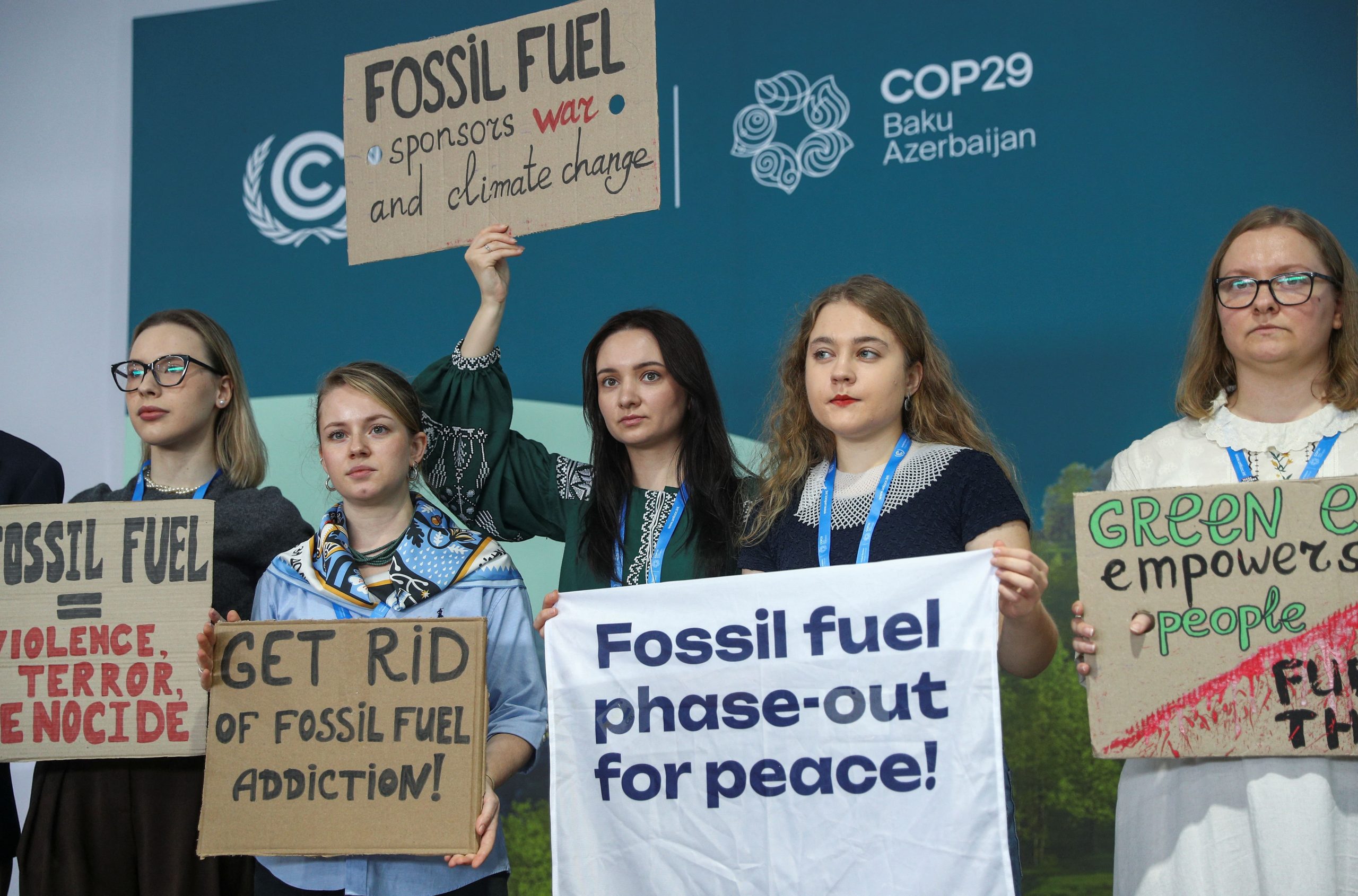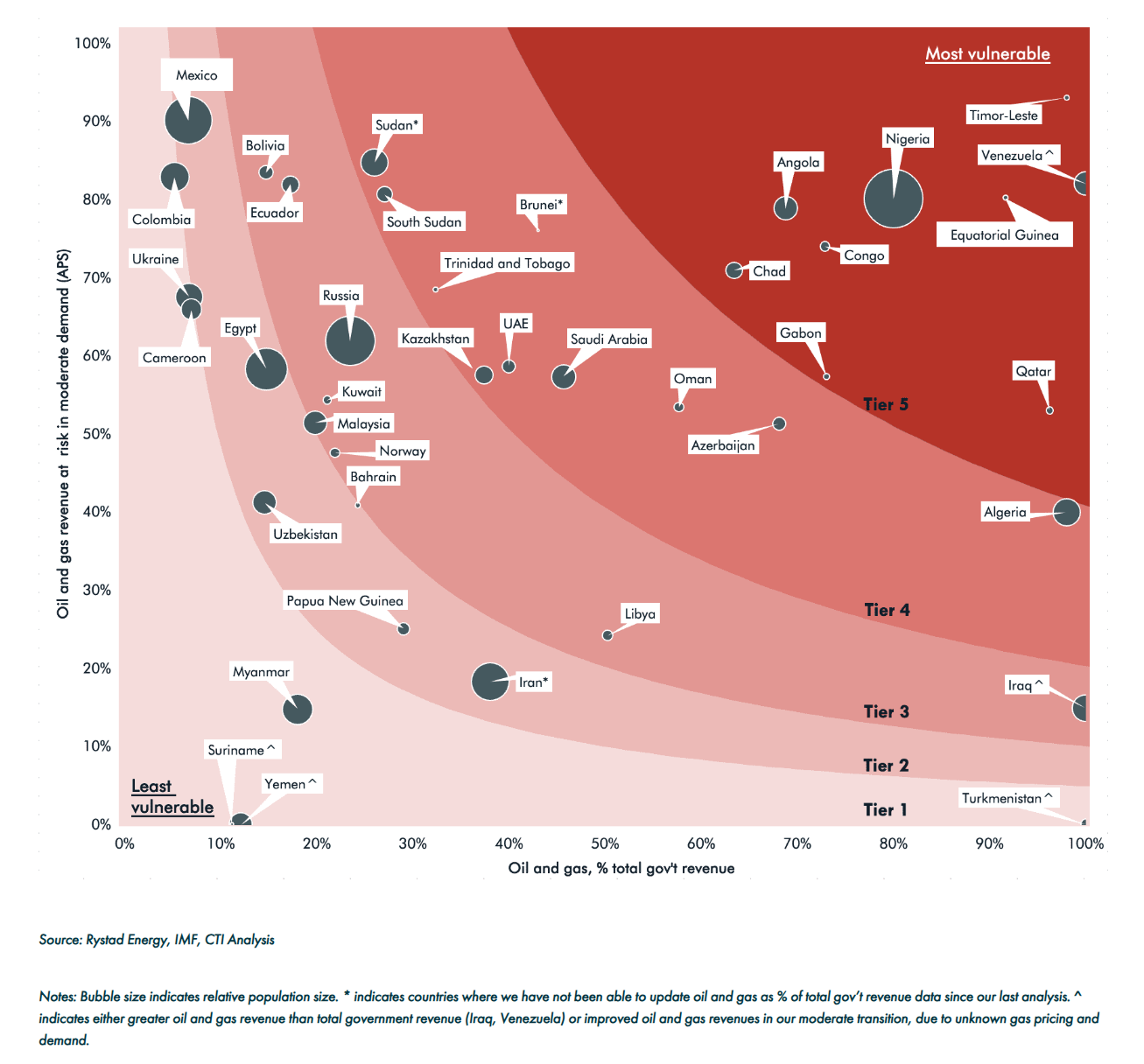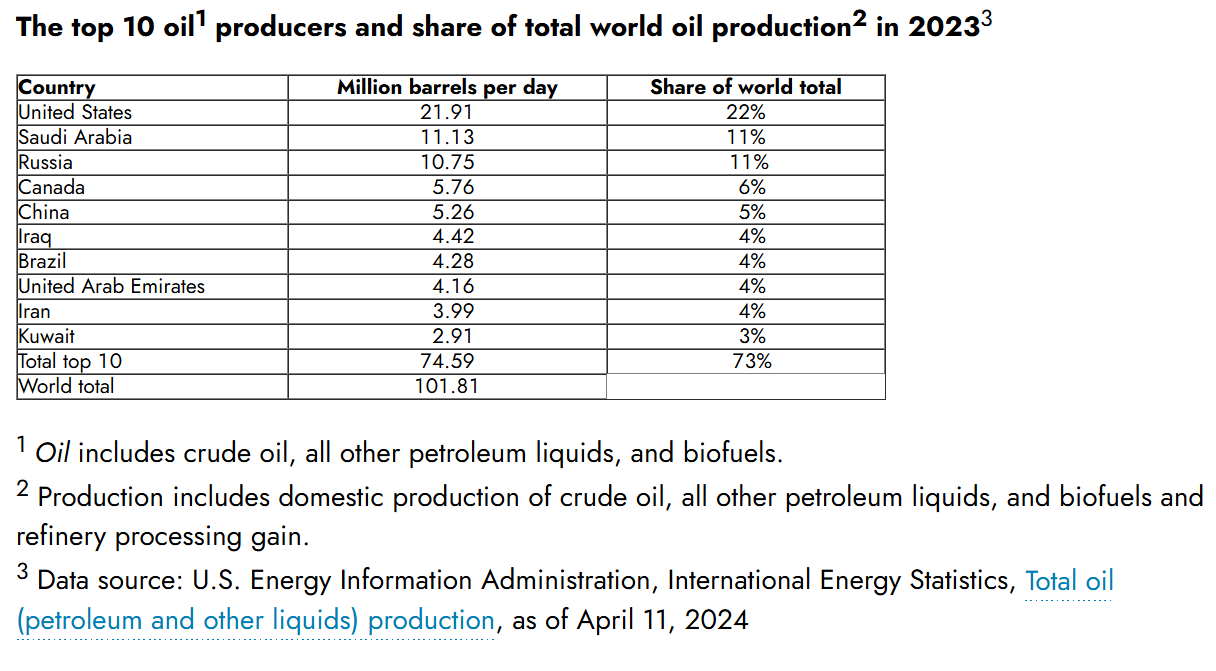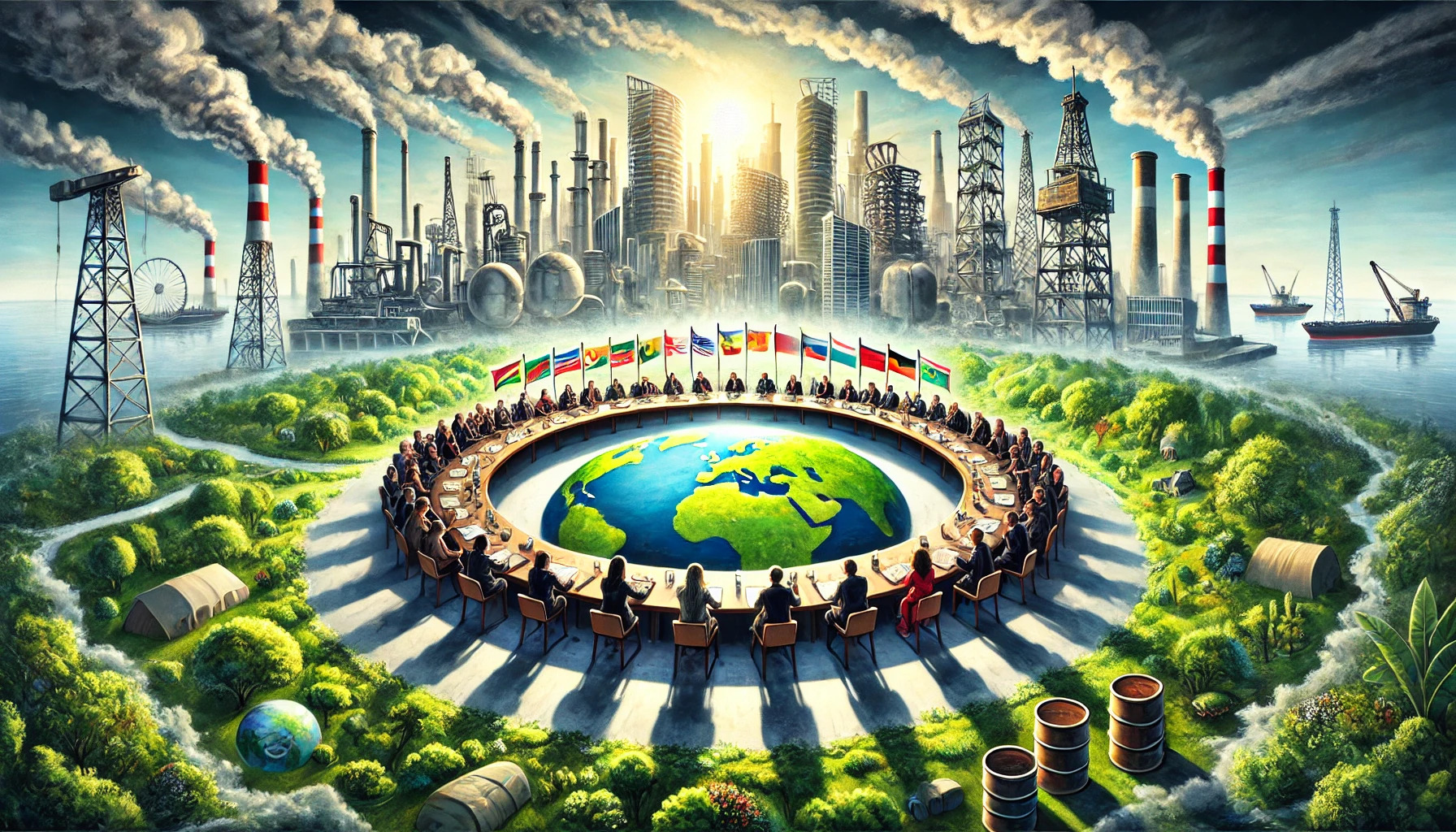The Petrostate Dinner Party
Over the last two weeks of COP29, taking place this year in Baku, Azerbaijan, there has been a lot of discussion about petrostates – and for good reason. By definition, a petrostate is an oil rich nation in which a significant amount of its gross domestic income comes from oil and natural gas and whose economic and political power are typically held by an elite minority while government institutions are often weak, poorly run, and subject to widespread corruption.
Currently there are about 40 petrostates around the world and as mankind considers ways to reduce fossil fuel consumption it’s estimated that 28 or so of those face significant economic risk from our global energy transition as demand for oil and gas declines along with prices for those products. Not surprisingly, the petrostates are fighting back by touting their oil and gas resources, and one of the schemes they are using is to host COP sessions like this year’s in Azerbaijan or 2023’s in the UAE.
The December 2023 chart below, based on data from the International Monetary Fund and an analysis by the Carbon Tracker Institute, illustrates petrostates that are most vulnerable from the transition to sustainable energy and away from fossil fuels. That analysis concluded that 28 of the 40 petrostates could lose more than half of their revenue under a moderate-paced energy transition in-line with current governmental climate commitments to reduce greenhouse gas emissions. The size of each circle illustrates the population of each country. Those listed in the upper right of this table are deemed most vulnerable to the transition while those in the lower left corner less vulnerable.
The International Energy Agency’s World Energy Outlook forecasts that demand for oil, gas, and coal will likely peak by 2030 as the prices for alternative forms of energy become less and less expensive. Such predictions are the reason that many nations around the world (this is especially true of the seven major industrial nations, or G7, as they are known within the UN: Canada, France, Germany, Italy, Japan, the United Kingdom, and USA, as well as the EU nations) have announced various plans to ban the sale of new gas and diesel vehicles, as well as gas fired boilers in the future, thus, reducing demand for such fuels. And many of the world’s nations, at least most of them, plan to increase, perhaps even double, steps to become more energy efficient by 2030 or so. Such steps and realities will make maintaining current revenue from polluting fuels nearly, if not, impossible for the petrostate nations and the pressure is on them to transform their economies while the world, in turn, transforms its approach to energy.
Much of the discussion at COP29 and around the world has become centered on whether a petrostate should be allowed to host future COP meetings given the possibility for bias in wanting to prolong their fossil fuel revenues for as long as possible. As part of what I sense is their strategy to fight back, to protect their established oil and gas industries for as long as possible, petrostates have become active in hosting the UN’s annual climate conference. In fact, the last three host nations (Egypt in 2022, the UAE in 2023, Azerbaijan in 2024) are all petrostate nations.
“A Gift From God”
Selecting Azerbaijan to host this year’s COP has long been controversial not only because it’s a petrostate in which oil and gas accounts for an estimated 2/3 of its total economy (GDP) and an estimated 90% of its exports, but because Mukhtar Babayev, an oil company executive at Azerbaijan’s state-owned oil company SOCAR, was selected as its COP President.
Or there’s the Azerbaijan President, Ilham Aliyez, who in his opening speech in Baku to begin COP29 ordained his country’s oil and gas reserves a “gift from God,” stunning COP attendees intent on reducing fossil fuel emissions. Needless to say, when the host country’s top governmental official wants to tout his rich fossil fuel resources at a conference supposedly focused on transitioning the world away from those exact products, we have a problem.
“There are a lot of joint ventures that could be established. SOCAR [State Oil Company of the Republic of Azerbaijan] is trading oil and gas all over the world, including in Asia. We will have a certain amount of oil and natural gas being produced, perhaps forever. At any case, this is something you need to be talking to SOCAR and I’d be happy to create a contact between yourself and them, your team, and their team so they can start discussions.”
Elnur Soltanoz, Azerbaijan COP29 CEO
Azerbaijan Deputy Energy Minister & SOCAR Board of Director’s Member
Then to make matters worse, as I posted last week, there is also COP29’s CEO, Elnur Soltanov, Deputy Energy Minister for the country and a SOCAR Board member, who was secretly filmed touting the “investment opportunities” in the state-owned oil company (SOCAR). The video was recorded by the human rights organization Global Witness, which had a person fictitiously posing as an investor from Hong Kong explain that his business was interested in helping sponsor COP29 but wanted to discuss investing in SOCAR in return. Mr. Soltanoz was eager to suggest potential investments in gas production in his country and to offer to introduce the pretend investor to his buddies at SOCAR.
I suppose it will not at this point surprise you to learn that nearly 1,800 coal, oil, and natural gas lobbyists obtained access to COP29 in Baku. That’s more than the delegations of every other country attending except for the host nation (Azerbaijan), next year’s host nation of Brazil, and Turkey. Heck, it’s been reported that the 10 nations most vulnerable to the impacts of climate change, especially sea rise, collectively only have 1,033 delegates in attendance. As was obvious last year in Dubai and is again in Baku, it is increasingly an unfair fight where fossil fuel lobbyists outnumber those trying to solve the climate crisis.
The Dubai Document
Not surprisingly, last year’s host country (Dubai, UAE) had similar ethical challenges that illuminated the potential conflicts of interest petrostates and the COP meeting present to the UN. There were, for example, a reported 2,500 fossil fuel industry lobbyists in attendance. Then there was the fact that while greatly touting his country’s investments in sustainable energy, the conference was, you guessed it, led by the CEO of the Abu Dhabi National Oil Company (ADNOC), Dr. Sultan al-Jaber.
It was not lost on attendees, myself included, that while hosting a conference intent on phasing out fossil fuels, ADNOC plans to spend upwards of $150 billion to increase its oil production capacity to 5 million barrels per day, something that’s estimated to vault them into becoming the world’s seventh largest oil producing nation. Adding to the understandable concern over UAE as the COP host last year was the news that it had used the conference as a device to negotiate nearly $100 billion in oil, gas, and petrochemical sales for ADNOC. That figure was reported to be five times more than what ADNOC had negotiated just one year before, in 2022, and more money than in the four years prior to COP28 combined.
Dr. Sultan al-Jaber also took the opportunity to use the global stage as the host nation to question the science related to climate change, suggesting that there was “no science behind phasing out fossil fuels” (there are reams of such science and only someone with a vested interest in protecting the goose that lays the golden egg, as they say, would suggest otherwise). You can read more about the shenanigans that took place in Dubai, much of which I witnessed there firsthand, in a post I wrote last December entitled COP Out? The Dubai Document here.
COP30: Here We Go Again?
Brazil, next year’s COP30 host, while not a petrostate, given its diverse economy is the largest oil producer in Latin America, the 7th largest producer of crude oil in the world as of 2023, and is expected to vault into the number four position over the next couple of years based on newly discovered oil reserves it intends to harvest. In fact, Brazil’s government has announced plans that indicate their oil production will double by 2029, peaking at around 5.4 million barrels of oil per day, while also saying it plans to join the Organization of the Petroleum Exporting Countries (OPEC).
Here’s the Top 10 Oil Producing nations in 2023 according to the U.S. Energy Information Administration (EIA):
So far as allowing petrostates to host future COP meetings, it’s my thinking that since we have a global climate problem every nation on earth should have a seat at the table that decides how to solve the issue by phasing out mankind’s use of fossil fuels, including oil and gas. However, that table does not need to be located in a petrostate country as it hosts a COP conference. The farce that pretends that such countries are not foremost protecting their main industry must end.
In addition to rethinking which countries deserve to host these talks, it has become clear that as petrostates become more desperate to protect their main source of income, the UN must implement aggressive, non-negotiable, ethical guardrails for all attendees. That most certainly starts with host nations and their leadership. If we are ever to phase out fossil fuel use, then host countries and their leaders must be as unbiased as possible while being required to follow strict policies and procedures related to their nations’ oil holdings. They should obviously not be attached to those industries and most certainly should not be touting the businesses that distribute the very products causing the world’s climate pollution. Such things should be strictly outlawed and vigorously monitored.
And while we rethink the effectiveness of future COP conferences, the time has also come to address the extraordinarily excessive number of oil and gas industry lobbyists participating in COP. To be clear, those industries should also have a seat at the negotiating table; I mean, who knows, perhaps one or more of them will come up with viable solutions to our climate crisis as they too increasingly face the threat of lost revenue and dying businesses. But, the current sheer number of attendees reeks of corruption and deceit. One or two lobbyists per company or trade group would seem more than enough to participate.
COP has served a remarkable purpose in bringing the nations of the world together to discuss solutions for a truly global, shared crisis. But change is needed. After 29 COPs the time has come to consider a radical new design that’s intensely and only focused on phasing out fossil fuel use, helping build a resilient world for those suffering from the damage mankind’s pollution has already caused, and from what they will increasingly suffer from in the future. Just as is the case in fighting our climate crisis, reforming COP needs to happen quickly and comprehensively if we are to ever hope to solve this growing, obvious issue.




